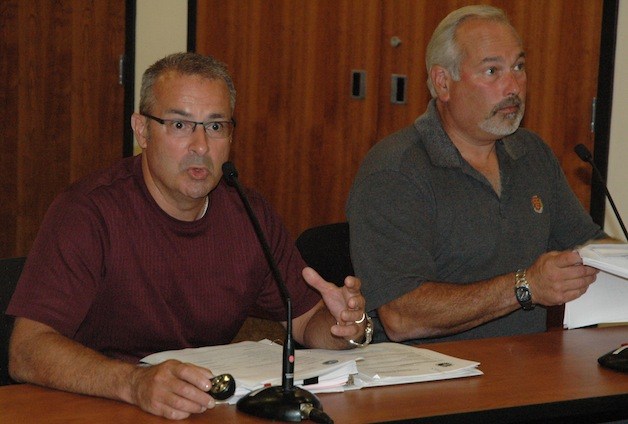ARLINGTON — The city’s 90-day moratorium on accepting business license applications for marijuana producers and processors is set to sunset this fall. As such, the Planning Commission voted unanimously to cap the number of producers and processors to the 14 who have already been permitted, until Dec. 31, 2015.
Building official Chris Young explained to the City Council Aug. 11 that this will give the city time to evaluate the performance of those producers and processors on a quarterly basis, especially as it strives to meet its employment goals for its proposed Manufacturing Industrial Center.
“Not all of the producers and processors submitted numbers of employees they expected to hire,” said Young, who pointed out that Cleo projected hiring 36 employees, the most of any of the 14 permitted. G&S Greenery and the 651 Group are tied for the fewest projected employees with five each.
By contrast, of the existing businesses in the MIC, the largest has 550 employees, while the smallest has 35.
When council member Jesica Stickles inquired about capping the businesses according to employment density, by requiring that they hire for a certain number of jobs per square feet, Young acknowledged that Cleo’s Chief Operating Officer, Steve Ciccarelli, had proposed that during the council’s Aug. 4 public hearing.
“As this goes forward, we’ll be looking at revenue potential versus the number of jobs that are required to qualify for the MIC,” Young said. “We want to incentivize high-impact job creation, and dis-incentivize low-impact job creation.”
Young floated business and occupation taxes as one means of doing this, but added that the 15-month duration of the cap would allow city staff to continue to research other options.
“One of our goals with the Manufacturing Industrial Center is to create family-wage jobs, and it seems like these businesses might not be a sustainable model for doing that,” council member Debora Nelson said. “If we see that these aren’t producing good jobs or helping us attain our goals, can we reduce that cap to eight, or not replace the producers and processors that have closed?”
“If a business was already permitted, it retains that permit until it closes,” city attorney Steve Peiffle said. “But yes, once it closes, you can reduce the number of permitted facilities.”
Young reported that Arlington received 37 applications of marijuana producer and processor businesses. If just 20 of those businesses were permitted, he estimated that Arlington would account for 10 percent of all the producers and processors in the state.
“Most of those folks simply picked an address that met their criteria,” Young said. “Many of them are fly-by-night. At least two have already been shot down.”
“This is an emerging industry, so it’s going to take time for us to figure it out,” said Paul Ellis, community and economic development director, who reiterated that the city would offer another public hearing before the council makes a decision.







